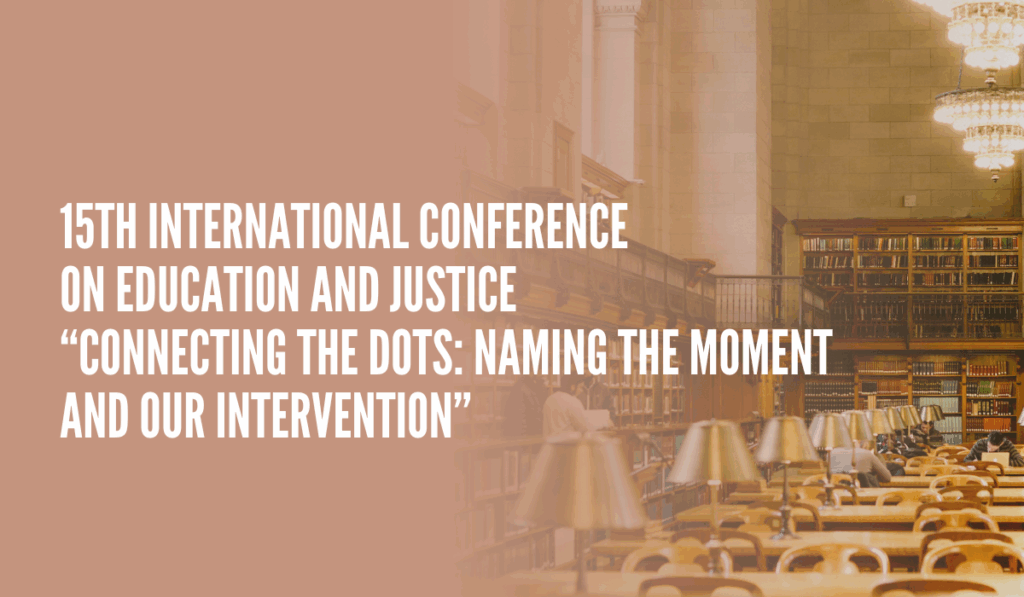
- This event has passed.
15th International Conference on Education and Justice
September 11, 2025 – September 12, 2025

Connecting the Dots: Naming the Moment and Our Intervention
Locally and globally, the attacks on and dismantling of education, democratic institutions and civic participation, and human rights and sovereignty, particularly for historically marginalized populations, are crystalizing for all to see. These attacks are highly coordinated, well-funded, and long entrenched in a range of intersecting ideologies and systems of imperialism and settler colonialism, autocracy, white supremacy, dominionism, heteropatriarchy, neoliberalism, militarism and carcerality, ableism, and more. Examples include policy “reforms” and public rhetoric that undermine any number of issues ranging from anti-genocide protest and truthful curriculum to DEI initiatives and LGBTQIA+ inclusion; from teacher professionalism and student civil-rights protections to democratic governance and equitable funding of educational institutions and initiatives; from humanizing learning and teaching at the classroom level, to community capacity building at the school and district levels, to a bold vision of education as movement building for justice at the levels of systems and values. What does it mean to advance justice through anti-oppressive education and collective action in this moment?
The 15th International Conference on Education and Justice highlights the role of educational scholars in anti-oppressive movement building, particularly when we produce scholarship collectively and leverage it for public pedagogy.
Sessions will feature projects and works-in-progress that aim to raise public awareness or influence educational policy and practice, as well as strategies to build our capacity for such interventions. Educators, scholars, students, leaders, advocates, and educational organizations and institutions from across the United States and around the world will convene to share collective scholarship for public pedagogy, as well as to support one another in such work through critical self-reflection and constructive criticism.
The 15th Conference returns to California, and will be held jointly with open meetings of CARE-ED and EDJE so that conference attendees can attend and benefit from these meetings, and vice versa.